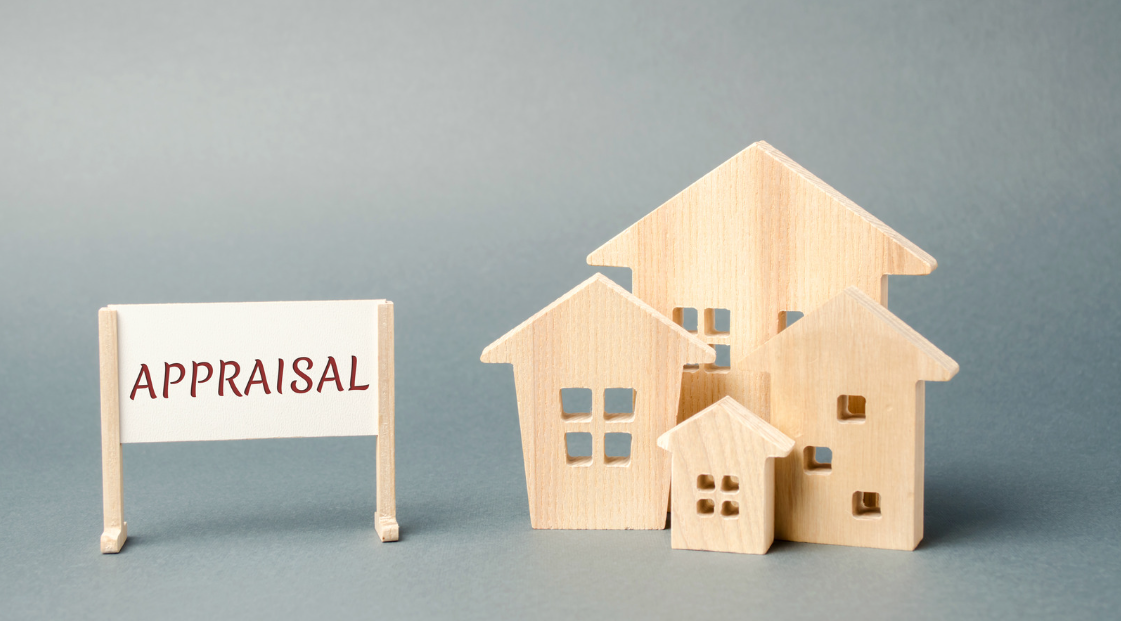As we step into 2024, the real estate market continues to evolve, bringing new trends…

How to Prepare For the Home Appraisal Process
Whether you’re a seasoned homeowner or a first-time buyer, understanding the home appraisal process and how it works is essential. A home appraisal isn’t just a routine part of buying or selling a house—it’s a crucial step that can make or break a deal.
What is a Home Appraisal and How Does It Work?
A home appraisal is an unbiased assessment of a property’s value conducted by a licensed or certified appraiser. It’s a meticulous process based on a combination of factors with the main goal of determining the property’s fair market value.
First off, the appraiser conducts a visual inspection of the property, both inside and out. They’ll take note of the home’s features, condition, and any upgrades or renovations. This inspection isn’t just a quick walk-through—it’s a thorough examination designed to uncover every detail that could affect the home’s value.
Once the inspection is complete, the appraiser will analyze their findings, go over comparable properties and do the required calculations to determine the home’s value. This involves looking at recent sales data for similar homes in the area, known as “comps,” to gauge the current market value.
Finally, they’ll compile all the information into a comprehensive appraisal report with the home’s appraised value and provide valuable insights into how that value was determined.
What Happens During the Appraisal Process?
During the appraisal process, you can expect the appraiser to leave no stone unturned. They’ll measure the square footage, assess the home’s overall condition, and note any visible defects.
Nonetheless, keep in mind that the home inspection is not just about the physical attributes. Other things that will be considered are intangible factors like the neighborhood, school district, and local market trends.
How Do I Prepare My House for Appraisal?
Preparing your house for an appraisal can help ensure that you get the highest possible valuation. You can start with things as simple as keeping the place clean, decluttering, and making any necessary repairs. Remember, this is about showcasing the home’s true potential and highlighting its best features for potential buyers.
You should also consider curb appeal, too—first impressions matter! Trim the hedges, mow the lawn, and add a fresh coat of paint to boost your home’s exterior appeal. The main goal is to present your home in the best possible light and make a positive impression on the appraiser.
Also, be prepared to provide the appraiser with any relevant documentation, such as recent upgrades or renovation receipts. This can help demonstrate the value that these improvements have added to your home and justify a higher appraisal value.
What Happens If the Appraisal Is Lower Than Expected?
If the home appraisal comes in lower than expected, don’t panic. While it can be disappointing, it’s not necessarily the end of the road.
You have a few options: you can challenge the appraisal, renegotiate the purchase price, or walk away from the deal altogether. If this situation arises, you can seek guidance from your real estate agent.
Do Sellers Usually Lower Prices After Appraisal?
Whether sellers lower their prices after an appraisal will depend on the specific circumstances of the deal. In some cases, sellers may be willing to negotiate if the appraisal comes in lower than expected. However, it ultimately comes down to the individual seller and their motivations. In these situations, your real estate agent can help with negotiations and advocate on your behalf.
Factors That Can Affect a Home Appraisal
Several factors can influence the outcome of a home appraisal, some of these are:
1. Location
One of the most significant factors that determine a property’s appraisal value is the location. Desirable neighborhoods with low crime rates, good schools, and convenient access to amenities like shopping centers, restaurants, parks, and public transportation tend to have higher property values.
Proximity to major employment centers and transportation hubs can also positively impact appraisal values. Whereas, it’s possible for properties located in less desirable areas or neighborhoods with declining property values to receive lower appraisals.
2. Condition
The condition of a home is another critical factor that appraisers consider when determining its value. Homes that are well-maintained, structurally sound, and free from significant defects or safety hazards typically receive higher appraisals. Appraisers pay close attention to factors such as the condition of the roof, plumbing, electrical systems, HVAC systems, and overall structural integrity when assessing a property’s value.
On the other hand, properties in poor condition, with deferred maintenance issues, or in need of significant repairs or updates may receive lower appraisals.
3. Size and Layout
Did you know that the size, layout, and functionality of a home can also influence its appraisal value? It sure can! Larger, spacious homes with more square footage and well-designed layouts tend to be favorable for higher appraisals.
Other desirable features such as open floor plans, ample natural light, and functional well-utilized living spaces are also valued more highly by appraisers. Furthermore, thoughtful spaces in the home are often seen as more valuable than homes with awkward or inefficient layouts.
4. Comparable Sales
Recent sales of similar homes in the area, known as comparables or “comps”, are crucial factors in determining appraisal values. Appraisers use the data from comparable properties to establish a baseline value for the subject property.
Some of the things they consider when making adjustments are the size, age, condition, location, and amenities of comparable properties. Properties that are similar in terms of size, condition, and location to the subject property are considered the most relevant comparables and have the greatest influence on their home appraisal value.
Home Appraisal Tips and Checklist
Preparation for home appraisal requires careful attention to detail and thorough planning. To help you get ready for the home appraisal process, we’ve compiled a handy checklist with some of the things you can do to present your home in the best possible light.
🏡 Download our Home Appraisal Checklist for easy access on the go!
- Clean and declutter your home.
- Make any necessary repairs, including fixing leaky faucets, repairing cracked tiles, and patching up any holes in the walls.
- Ensure all major systems are in working order, such as plumbing, electrical, heating, and cooling.
- Replace worn or outdated fixtures like faucets, light switches, and cabinet hardware, to give your home a fresh look.
- Steam clean carpets and upholstery.
- Paint walls in neutral colors to appeal to a wide range of tastes and make rooms feel larger and brighter.
- Organize closets and storage spaces to showcase their full potential and storage capacity.
- Stage your home to highlight its best features and create an inviting atmosphere for potential buyers.
- Provide documentation for any recent upgrades or renovations.
- Make sure all windows are clean and in good condition, with functioning locks and screens.
- Trim trees and bushes to enhance curb appeal.
- Clean out gutters and downspouts to prevent water damage and improve drainage.
- Address any safety hazards, such as loose handrails, uneven steps, or trip hazards in walkways and pathways.
- Spruce up outdoor living spaces, such as patios, decks, and porches, with furniture, plants, and decorative accents.
- Provide easy access to attic and basement spaces, for the appraiser to inspect.
>> Click here to download our checklist for your home appraisal process <<
In conclusion, navigating the home appraisal process can be a pivotal aspect of buying or selling a home. Understanding the factors that can influence appraisal values can assist in approaching the process with confidence and can increase your chances of achieving a favorable outcome.
Whether you’re a buyer in the process of financing your home purchase your home or a seller looking to maximize your property’s value, being well-informed and proactive can make all the difference.
Here’s to a successful home appraisal and the next exciting chapter in your real estate journey!


